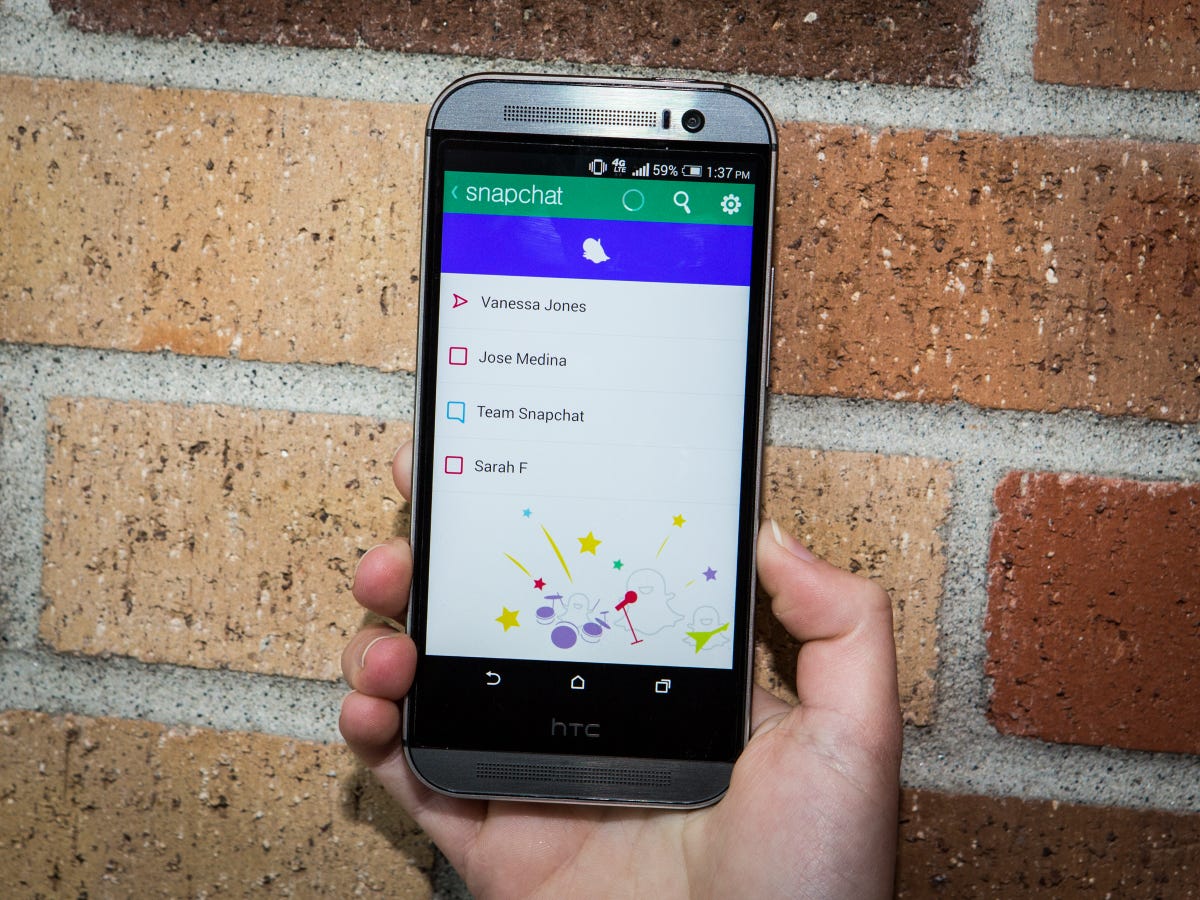
Josh Miller/CNET
The messaging service Snapchat, now a robust application for sharing both photos and videos, is built on the ephemeral nature of communication on its platform: Snap a picture or shoot a video, set a time limit for viewing, and send it off to a contact. When the time limit’s up, says Snapchat, the message disappears for good. Except when it doesn’t.
That discrepancy between the company’s claims and the reality of using its mobile app landed it in hot water. Snapchat agreed Thursday to settle with the Federal Trade Commission, which says the company was deceiving users into thinking their photos and videos were gone forever when in fact that wasn’t the case.
There are numerous ways for people to save files sent to them on Snapchat before the time limit runs out. The most obvious is an easy two-button screen capture on a smartphone. The most discrete involves third-party apps that let users record onscreen behavior or log directly into the app to work around its limited privacy protections. There are also ways to dig up files in a device’s directory when the device is plugged into a computer.
Snapchat, run by co-founders Evan Spiegel and Bobby Murphy, recently released a major update to its iOS and Android apps that allows for one-on-one messaging and quick and easy video chatting. Founded in 2011, the company has become a powerhouse in the US messaging sphere, earning it a $3 billion acquisition offer from Facebook, which Spiegel infamously rebuffed, and making it a poster child for the startup-valuation bubble surrounding companies with exploding user bases yet little to no revenue.
Related stories
- Snapchat adds chat, video calls
- Snapchat: OK, OK, we’re sorry
- Snapchat said to rebuff $3 billion offer from Facebook
Snapchat’s immense popularity, especially among the less privacy-savvy teenage market it’s primarily targeting, has attracted the regulatory spotlight.
The company does inform users when the photos they send have been screen-captured by others within the app, but the FTC had problems with how the app was being touted.
“If a company markets privacy and security as key selling points in pitching its service to consumers, it is critical that it keep those promises,” FTC Charwoman Edith Ramirez said in a statement. “Any company that makes misrepresentations to consumers about its privacy and security practices risks FTC action.”
The commission’s complaint also said Snapchat’s failure to secure a feature of its app that let users find friends by fishing through a smartphone’s address book left a gaping vulnerability in the service. That flaw led to a widely publicized security breach that compromised 4.6 million usernames and phone numbers earlier this year. The FTC also alleged that Snapchat was collecting users’ location data.
Snapchat did not receive a monetary penalty, but is now prohibited from “misrepresenting the extent to which it maintains the privacy, security, or confidentiality of users’ information” and must now maintain, for 20 years, a privacy program monitored by an independent privacy professional. Failure to abide by the terms of the settlement will result in fines, the FTC says.
In a statement given to CNET, Snapchat responded to the terms of the FTC settlement:
“When we started building Snapchat, we were focused on developing a unique, fast, and fun way to communicate with photos. We learned a lot during those early days. One of the ways we learned was by making mistakes, acknowledging them, and fixing them.
“While we were focused on building, some things didn’t get the attention they could have. One of those was being more precise with how we communicated with the Snapchat community. This morning we entered into a consent decree with the FTC that addresses concerns raised by the commission. Even before today’s consent decree was announced, we had resolved most of those concerns over the past year by improving the wording of our privacy policy, app description, and in-app just-in-time notifications. And we continue to invest heavily in security and countermeasures to prevent abuse.
“We are devoted to promoting user privacy and giving Snapchatters control over how and with whom they communicate. That’s something we’ve always taken seriously, and always will.”
Update at 11:33 a.m. PT: Added Snapchat comment.



